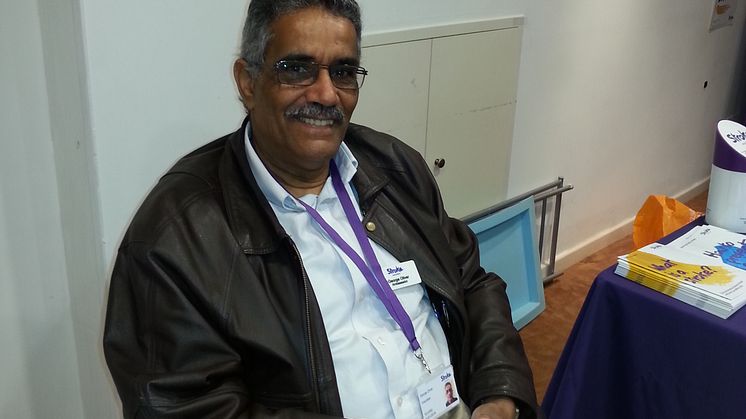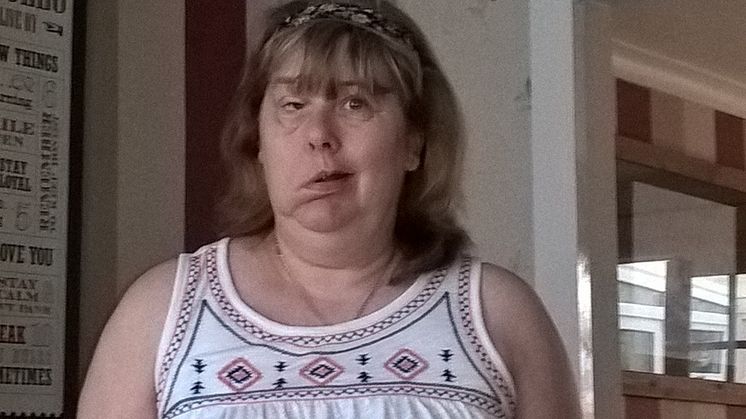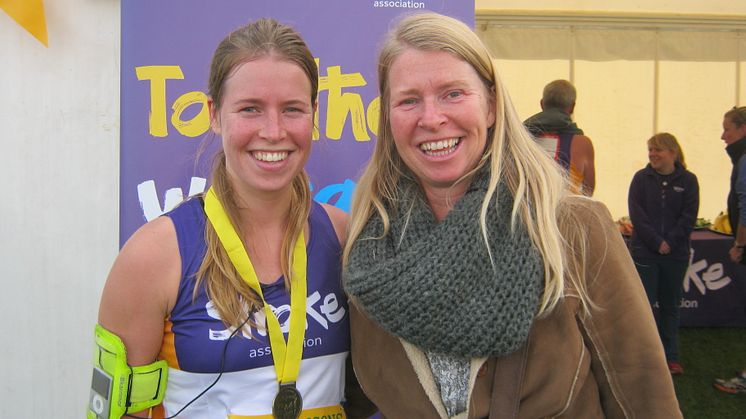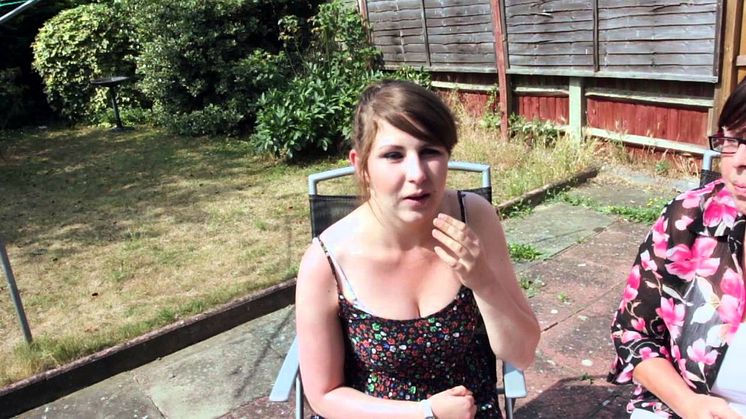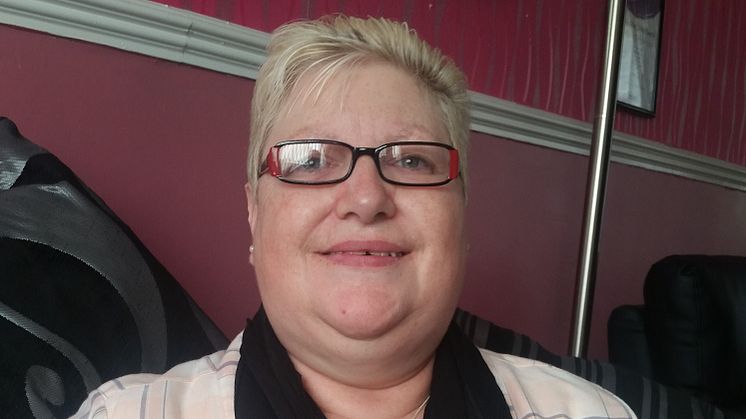
Press release -
Gateshead stroke survivor finds her voice
Gateshead resident Denise Groome, 57, is on the road to recovery after a stroke left her with limited communication and unable to write and spell.
Denise had a severe stroke during surgery in September 2013. She was in Queen Elizabeth Hospital for three weeks, before she was discharged with limited communication. She struggled with stuttering when she spoke and was left with trouble writing and spelling.
Before her stroke, Denise was a keen writer of children’s stories, often reading her own original tales to her nephews and young family members. However after her stroke, she found herself writing back to front, or ‘mirror writing.’ Once home from hospital, Denise was supported by the Stroke Association’s Communication Support Service, which gave her the confidence to begin writing again.
Denise said: “Life is completely different since my stroke, but I’m not going to let it beat me. I’m taking my recovery one day at a time, and I’m so grateful to the Stroke Association for their support.”
Denise is one of more than 350,000 people in the UK with aphasia, a communication disability which can affect people’s ability to speak, read, write, use numbers and understand but not their intelligence. Aphasia is caused by stroke, head injury or other neurological conditions.
Maria Wilkinson, Communication Support Coordinator at the Stroke Association, said: “Denise has shown incredible determination in their recovery. To see Denise rebuild her life after her stroke and overcome the challenges she faced, is hugely inspirational.
“Having aphasia can be so frustrating because many stroke survivors know what to say, but are unable to make themselves understood. Seemingly ordinary tasks like buying a pint of milk or using money can feel very stressful, and it is easy to lose confidence. Many people with aphasia can feel very isolated as a result.
“If people working in shops, cafes, banks and a huge variety of other customer service roles know about the disability and follow a few of our simple tips, the barriers to communication can be start to be broken down.”
The Stroke Association is raising awareness of aphasia and how people in the community can help support stroke survivors affected by the condition. To support this campaign, you can go to stroke.org.uk/aphasia or search for #aphasia on social media.
The Stroke Association provides a Communication Support Service in Gateshead, in partnership with Gateshead Clinical Commissioning Group. For more information about stroke, ring the Helpline on 0303 30 33 100 or visit www.stroke.org.uk.
Topics
Categories
Regions
A stroke is a brain attack which happens when the blood supply to the brain is cut off, caused by a clot or bleeding in the brain. There are around 152,000 strokes in the UK every year and it is one of the largest causes of disability. There are over 1.2 million people in the UK living with the effects of stroke.
Stroke Association is a charity. We believe in life after stroke and together we can conquer stroke. We work directly with stroke survivors and their families and carers, with health and social care professionals and with scientists and researchers. We campaign to improve stroke care and support people to make the best recovery they can. We fund research to develop new treatments and ways of preventing stroke. The Stroke Helpline (0303 303 3100) provides information and support on stroke. More information can be found at www.stroke.org.uk


